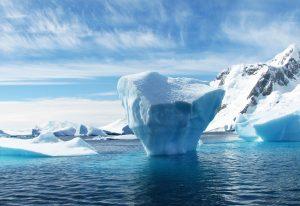In a stark revelation, 2023 has been confirmed as the hottest year on record, according to climate scientist Dr. Kevin Trenberth from the University of Auckland. The alarming findings, analyzed through a meticulous study of ocean temperatures, uncover the undeniable influence of anthropogenic climate change, further exacerbated by the El Niño event.
Rising Ocean Temperatures and Their Consequences
Dr. Trenberth and a global team of researchers have been diligently collecting data from 4000 Argo floats, instruments designed to measure ocean temperatures and salinity levels. The results are unsettling, revealing that each year in the past decade has surpassed the preceding one in terms of oceanic heat.
The ocean plays a critical role in climate regulation, acting as a vital carbon sink that absorbs vast amounts of CO2 and heat from the sun. However, the warming of the ocean is now posing severe threats to our planet. Dr. Trenberth warns that a warm ocean contributes to intensified weather events, including more destructive cyclones, heavier rains, and devastating flooding.
The Impact on Marine Life
As ocean temperatures rise, marine life faces a double threat. The warming occurs from the top down, creating a stable configuration where warm water inhibits the penetration of oxygen and carbon dioxide into the ocean. This has profound implications for marine ecosystems, affecting the habitats of creatures such as penguins, otters, and seals worldwide. The stability of these ecosystems is under threat, demanding urgent attention and action.
The Call for Renewable Energy
Dr. Trenberth emphasizes that the alarming trends underscore the critical need to transition away from fossil fuels promptly. Shifting towards renewable energy sources like wind, solar, and hydropower is no longer a choice but a necessity. Despite progress in some regions, global leaders must step up efforts to cut emissions. Dr. Trenberth expresses dissatisfaction with the pace of change, especially in countries like China and India, which continue to increase emissions.
Preparing for the Consequences
From a New Zealand perspective, Dr. Trenberth underscores the importance of acknowledging climate change and preparing for its consequences. Coastal regions, in particular, must brace for rising sea levels and increased rainfall. Robust water management and drainage systems are crucial for mitigating the impacts.
As we reflect on the revelations from Dr. Trenberth’s research, the urgency of addressing climate change becomes undeniable. The 2023 record-breaking temperatures are not just statistics; they are stark reminders of the environmental challenges we face. It is incumbent upon us to unite globally, adopt sustainable practices, and prioritize the shift to renewable energy. The time to act is now, for the sake of our oceans, our planet, and future generations.







